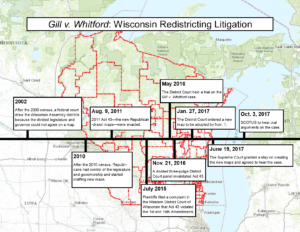Last week, the Wisconsin Civil Justice Council (WCJC) filed an amicus brief with the Supreme Court of Wisconsin in Ascaris Mayo v. Wis. Injured Patients and Families Compensation Fund. WCJC supports the patients’ compensation fund position on the validity of the $750,000 cap on noneconomic damages arising out of medical malpractice claims. The brief asked that the court grant the fund’s request for review.
In a July 5 opinion, the Wisconsin Court of Appeals, District 1 (Milwaukee County), found the statutory $750,000 cap unconstitutional. The court found the cap was “an unfair and illogical burden only on catastrophically injured patients, thus denying them equal protection of the law.”
The WCJC brief sets forth the parties’ interest in the case, focusing on the appropriate standard for courts considering reversal of legislative enactments. Since Ferdon v. Wis. Patient Comp. Fund, the courts have been unclear regarding the “rational basis” test as it relates to an equal protection claim. WCJC’s brief asks the Supreme Court to draw a clear line to make damages more predictable.
The case arose from a septic infection resulting in the amputation of the plaintiff’s limbs. The lower court did not find negligence, but instead rested liability on improper informed consent regarding diagnosis and treatment options. The jury awarded the plaintiff $15 million in noneconomic damages, such as pain and suffering, and $1.5 million to the plaintiff’s husband for loss of society and companionship. Unaffected is the reported $8.8 million award for economic damages, which has no statutory limitation.
Joining WCJC on the brief was the American Tort Reform Association and the National Federation of Independent Businesses.

